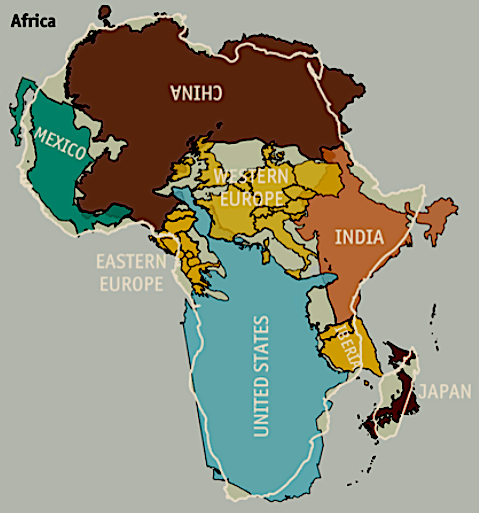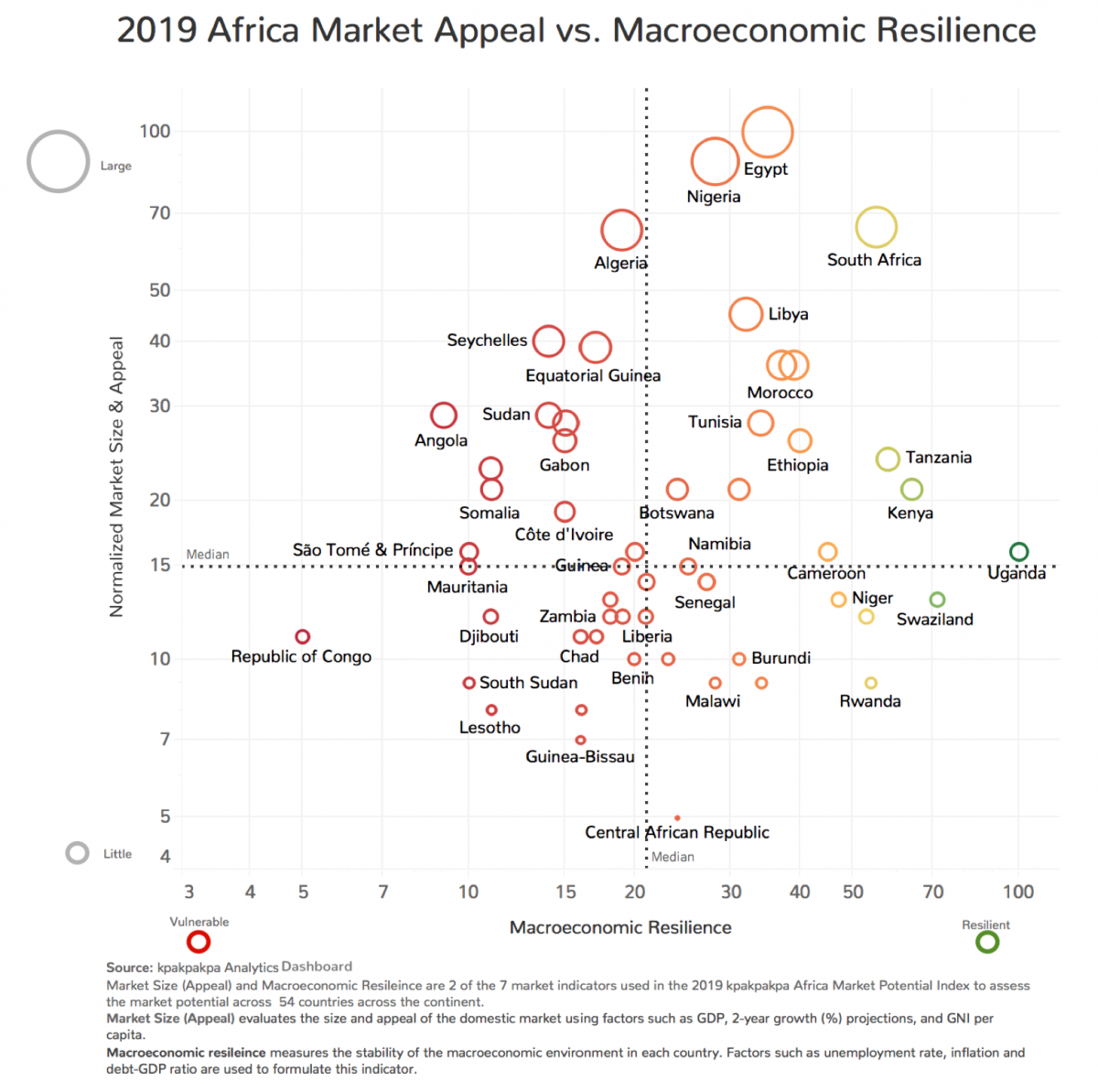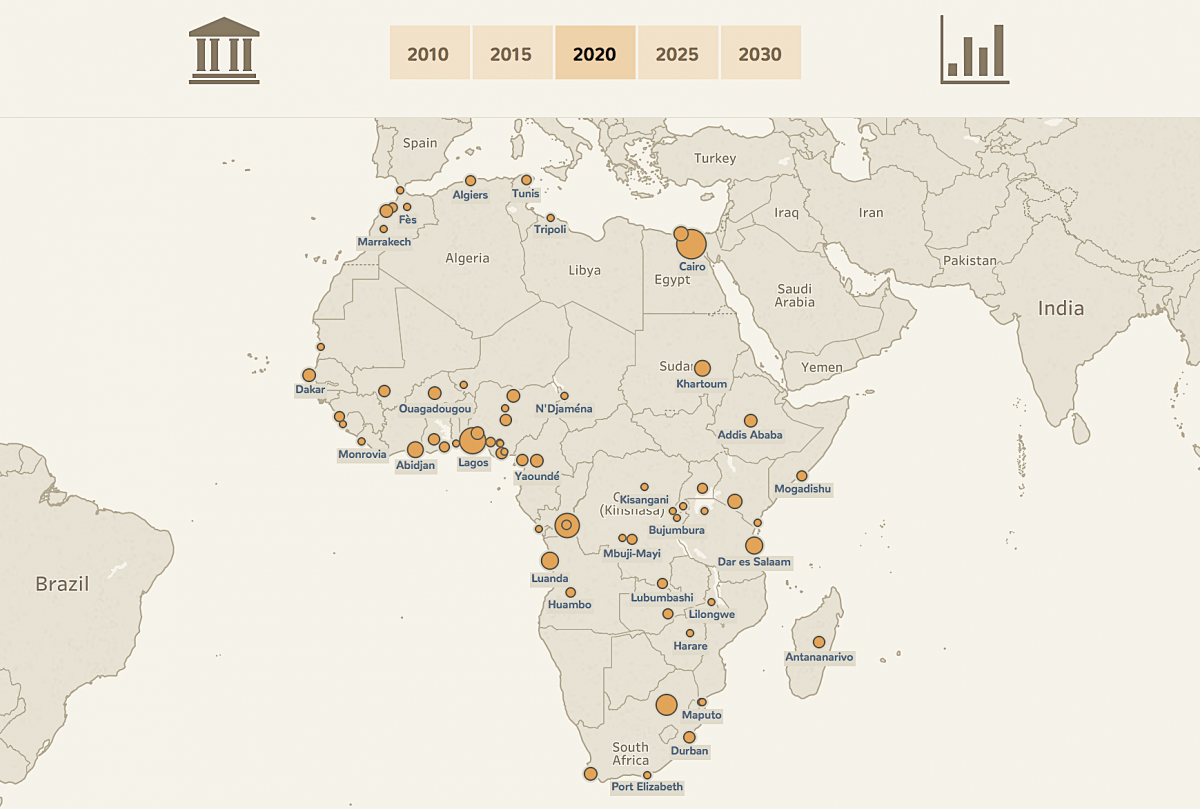To some companies, including the Africa market in their growth strategy is something nice to have in their expansion portfolio.
However, to entrepreneurs and business managers that are good at spotting opportunities before others, they are prioritizing Africa in their expansion strategy, knowing it’s the most important growth market in the next decade.
Home to 1.2 billion inhabitants – with 60% of its population under the age of 25, the African market holds emerging and youthful promise across its 54 unique countries. There are two major indicators that highlight this emergence of opportunity for businesses across the continent.
The first being that six out of ten of the globe’s fastest growing economies are in 2018 were in Africa — with Ghana at the top of the world ranking.
The second reason why businesses are including Africa in their global strategy is the constantly improving business conditions.
In the World Bank’s 2019 Doing Business index, five of the 10 most improved countries are in Africa. It is important to state that 264 reforms were implemented in 190 countries in 2018, and of these, about 83 were implemented in Africa – one-third of all reforms recorded globally.
The trends that are spurring this economic growth and a more conducive business environment in Africa are a growing population that’s rapidly urbanizing, a focus on industrialization and value-addition to traditional commodity markets, a push to reduce an infrastructural gap, and exponential growth in digital connectivity.
These are among the factors that make Africa an appealing market for growth. In addition, is the newly signed framework establishing the African Continental Free Trade Area (ACFTA). This agreement would see inter-trade between African markets increase and possibly set-up the largest free trade agreement since the creation of the World Trade Organization.
These are just a list of reasons why businesses are looking for the right strategy to capture the potential opportunities to be unleashed.
Understanding Africa’s complexity
Despite the clear opportunities within the continent, companies seeking to build or grow a business in Africa face a real issue – how to navigate the continent’s scale and complexity.
Africa’s land area exceeds that of Europe, China, India, and the United States combined.

The continent’s 54 countries have over a thousand languages and huge diversity in income levels, infrastructure development, natural resources, governance level, business sophistication, and social development.
While Nigeria has 190 million people and Ethiopia and Egypt have 105 and 98 million people respectively, most African nations have fewer than 20 million inhabitants.
Nine countries make up 75% of Africa’s GDP, and in 2030 three countries – Nigeria (20 percent), Egypt (17 percent), and South Africa (11 percent) – will represent almost 50% of the household consumption across the continent.
Many smaller countries, however, are growing quickly and increasing their share of continental GDP and consumption while striving for economic resiliency. Understanding the diversity across the continent provides the context that businesses need to navigate locally as they build out a successful business strategy.

How to win: Start with goal clarity
One major barrier to setting a good strategy is the limited access to credible consolidated information about each market for proper assessment.
Instead of trying to assess each market individually, resourceful business managers start with their business goals first.
By clearly defining what success would look like to their organization, these managers establish their short and long term goals. They breakdown their goals into timed and measurable chunks, providing the baseline for which they can measure their performance as they execute on an initial strategy.
Start with your GOALS!
Short-term: What do you want to achieve in the first 12 months.
Long-term: What would you ideally like to see in the next 3 – 5 years.
Write these goals down.
Share ideas with your team. Be very clear and put a specific timeline and some numbers behind each goal.
For instance, “grow sales by 20% in West Africa in the next 12 months”.
“scout for 5 new distributors in SSA by the end of the year”.
“know the total addressable market for our solution in the next six months”.
With clearly defined goals, you’d be able to measure what’s working and what’s not working. This will be very important as you innovate your business model and fine-tune your strategy down the line.
Prioritizing Markets
The next strategy task is prioritizing the top markets that would help companies get the best return on investment on resources allocated to grow their presence across Africa.
As in any market, deciding where and how to compete is critical. To compete in Africa, companies need to pick the right geographic and industry trends to ride.
Organizations with exposure to high-growth cities, countries, and regions improve their odds of succeeding.
Also, businesses that tap into trends such as the increased adoption of digital connectivity, improved governance, upgraded infrastructure, and enhanced social development, have better odds to outperform others.
Each country varies in levels on each of these market indicators. To build a successful expansion plan across the continent, companies have to access the countries that have the right combination of trends. The right mix that would give them the best opportunity to boost their market development ROI both in the short and long term.
Our Africa Market Potential Index allows business managers to assess and prioritize the 54 countries across 7 important market trends – market size, economic resilience, good governance, social development, investment in infrastructure and technology, economic diversification, and business ease.
The 2019 rankings saw South Africa (1st), Mauritius (2nd), Egypt (3rd), Morocco (4th), and Tunisia (5th) take up the top five position. Uganda (7th), Kenya (8th), and Rwanda (9th) – three countries in East Africa were in the top 10 business destination on the continent.
Algeria, another market that managers prioritize in their expansion strategy, ranked 13th. Nigeria, the most populous country with the largest GDP, is ranked 14th along with other West African countries – Ghana (17th), Senegal (18th), and Cote d’ Ivoire (19th), rounding up the top 20 markets on the continent.
It is also important for business managers to think about Africa’s cities and not just countries as they prioritize markets in their expansion strategy. By 2020, Africa will have over 80 cities with more than a million inhabitants.
There are currently 9 African cities with 5 million inhabitants. This number of African cities will double to 18 cities by 2030. Fast-paced urbanization is an important trend. It’s one reason why companies should make cities a central focus of their African expansion plan. It should be noted that per capita consumption in Africa’s large cities is nearly double the average of these cities’ host countries.
To benefit from these growth trends companies have to explore with an imaginative and curious mindset to unlock unique value propositions. This would help them effectively reach their target customer base in their prioritized markets. Eventually building the appropriate ecosystem to develop long-term relationships with these customers.
A Localized strategy: Innovating a unique business model
Once markets have been prioritized to hit your short- and long-term goals. The next step is following through with a practical execution strategy.
To succeed you need a localized strategy for each country. You’d also need dedicated resources or a local support team to execute on that strategy. To build a localized strategy, companies have to engage in extensive due-diligence to identify untapped opportunity. Serving unmet needs within their target base.
By performing on-ground market research, companies get the required market insights. Insights needed to get familiar with the competitive, distribution, and regulatory landscape. This allows companies to properly position their solutions in the market.
Initial and on-going market monitoring allows companies to deliver a unique value proposition. One that they can continue to build an entire ecosystem around. Incorporating a local ecosystem would be critical in your strategy.
Each market will have its own unique nuances. For instance, a survey of business owners in Nigeria revealed that 33% of businesses are challenged with a “hostile business environment”. Infrastructural issues, regulations that change often, a scanty pool of qualified personnel hinder business growth.
Limited access to business funding contributes to a challenging local landscape to conduct business in. Understanding this landscape requires companies to adopt proven marketing strategies in Nigeria. A localized strategy that yields real results.
Having a good strategy is not enough, you’d have to continue to innovate your business model. Build operational solutions to keep you on the path towards hitting business-critical objectives.
Streamline your supply chain by seeking out local strategic partners. Partners that will keep you connected to your customer base. Local professionals to manage risk and boost your company’s resilience to inevitable shocks in Africa’s dynamic market.
The local expertise is what gives successful companies the edge needed. They gain an in-depth and realistic understanding of the barriers to their business success. This helps them build-in the necessary resilience to develop sustainable business models.
Building relationship and deeper purpose
Business in Africa is relationship-centric. The bigger your professional network, the higher your odds of success. As you develop your business strategy across the region, make sure you are fostering good long-term relationships. Meaningful relationships with your customers, suppliers, and key-decision-makers in your industry.
Spending the time to nurture the right relationships is a strategy that will give you access to resources that to hit your growth targets fast-evolving region.
Africa is a challenging market. There’s no denying that. To unlock the untapped potential, you have to be willing to see challenges as opportunities. Along with the long-term commitment to building something meaningful.
The businesses that succeed in Africa are those that are driven by a more meaningful purpose. They are aware of the gaps in infrastructure, education, and healthcare. They are cognizant of the unemployment and poverty levels. Instead of these being deterrents, they see these as human issues worth solving.
By committing to long-term relationships with your business community in each prioritized country, you would be laying the concrete foundation. A winning strategy to leap high-growth expansion across the fastest growing region in the world.

